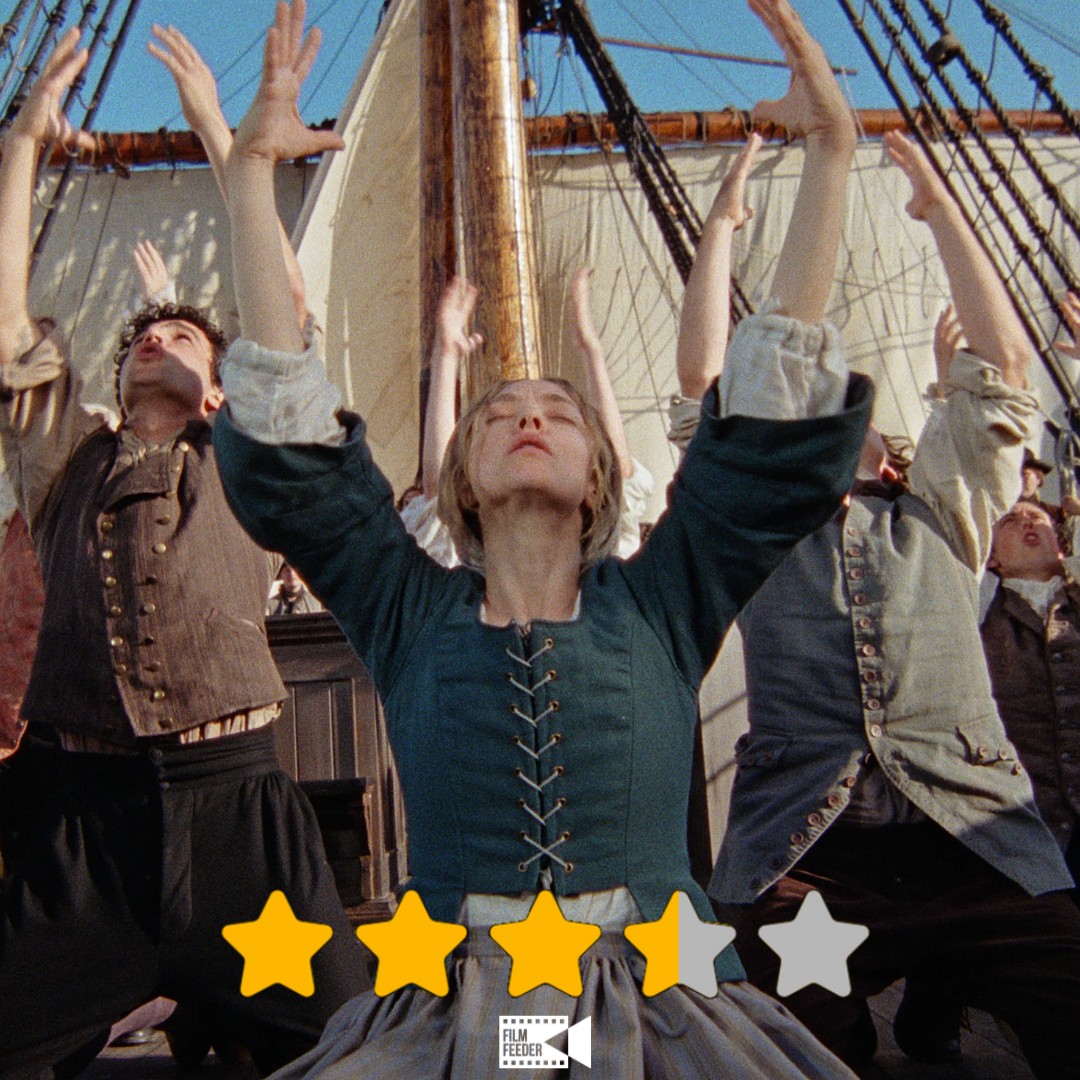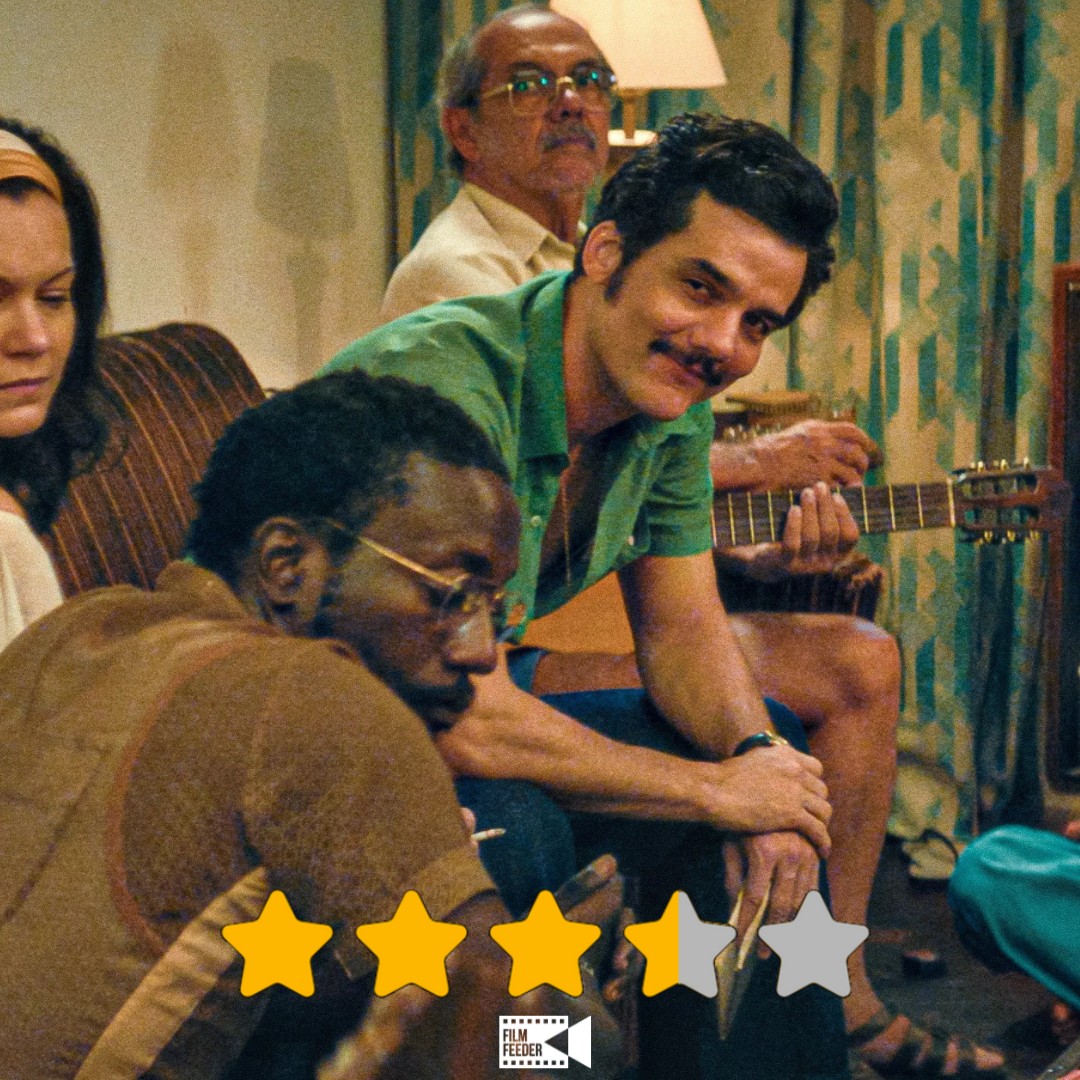
There’s Still Tomorrow (2024, dir. Paola Cortellesi)
Certificate: 15
Running Time: 118 mins
UK Distributor: Vue Entertainment
UK Release Date: 26 April 2024
WHO’S IN THERE’S STILL TOMORROW?
Paola Cortellesi, Valerio Mastandrea, Romana Maggiora Vergano, Emanuela Fanelli, Giorgio Colangeli, Vinicio Marchioni, Francesco Centorame, Lele Vannoli, Paola Tiziana Cruciani, Yonv Joseph, Alessia Barela, Federico Tocci, Priscilla Micol Marino, Maria Chiara Orti, Silvia Salvatori, Mattia Baldo, Gianmarco Filippini, Gabriele Paolocà
WHO’S BEHIND THE CAMERA?
Paola Cortellesi (director, writer), Furio Andreotti and Giulia Calenda (writers), Lorenzo Gangarossa, Mario Gianani and Vindhya Sagar (producers), Lele Marchitelli (composer), Davide Leone (cinematographer), Valentina Mariani (editor)
WHAT’S IT ABOUT?
In post-war Rome, an abused housewife (Cortellesi) seeks personal liberation…
WHAT ARE MY THOUGHTS ON THERE’S STILL TOMORROW?
During last summer’s domination of the Barbenheimer phenomenon, there was only one true underdog that took on both Greta Gerwig’s Barbie and Christopher Nolan’s Oppenheimer, and somehow won – at least, in Italy. There’s Still Tomorrow, a locally-produced black-and-white feature by director and writer Paola Cortellesi (who also stars in the film), ended up grossing over €33 million at the Italian box office, leaving both blockbusters in the dust to become the country’s highest-grossing film by a good few million extra to its name.
There are surprisingly many reasons to explain why There’s Still Tomorrow caught on so much in its home country, more so than either one of the critically-acclaimed, Oscar-winning hits. For one, it is a stylistic throwback to the ever-popular neorealism period of Italian cinema that forever defined the country’s industry. For another, it depicts a revolutionary period in 20th century history that shaped the course of its future and gave long-overdue rights to suppressed voices.
Most of all, though, it’s a certified crowd-pleaser that’s witty and charming, but also unique and rather surprising in its depiction of female suppression and ultimate empowerment.
Taking place in post-war Rome, wherein society is coming back to its senses following its period of fascism (in part thanks to numerous Allied soldiers patrolling the streets), the film revolves around a working-class housewife named Delia (Cortellesi). She is trapped in an unhappy marriage to her abusive husband Ivano (Valerio Mastandrea), who forces her and their teenage daughter Marcella (Romana Maggiora Vergano) to care for his ailing father-in-law Ottorino (Giorgia Colangeli), and to work several jobs before handing him all the cash, which he promptly spends on drink and prostitutes. A few events soon inspire Delia to finally act against her depressing circumstances; one is Marcella’s engagement to a well-off young man named Giulio (Francesco Centorame); another is the prospect of running away with Nino (Vinicio Marchioni), a local mechanic who still pines for her as his lost love; and, perhaps most crucially of all, the arrival of a mysterious letter that Delia treats like it’s the latest in a long line of love notes.
It is the latter that gives There’s Still Tomorrow its most surprising edge, as Cortellesi subverts expectations by suggesting one particular outcome that is often typical for a film like this, only for it to turn into something else entirely that revolves around an event that is arguably bigger than even her protagonist’s sympathetic plight. For most of the movie, the director employs a sneaky misdirect filled with red herrings regarding Delia’s journey, such as a secret compartment where she stores all her hidden cash from her brutish spouse, and a well-meaning American solider (played by Yonv Joseph) that notices the bruises all over her body. Then, in the final few minutes, the filmmaker makes all the seemingly mismatched pieces click together via a significant historical event that is happening around the same time, in a way that is completely unexpected and yet entirely satisfying in its connections to the preceding themes of liberation and independence.
Until that moment, Cortellesi delivers an enjoyable tribute to neorealist Italian cinema, crafting a fine line between pastiche and homage when it comes to honouring the works of Roberto Rossellini, Vittorio De Sica and even Federico Fellini. Cortellesi has a cheeky way of playing up the melodrama for comedic effect, with romantic encounters and even certain performances carrying more than a whiff of self-awareness while still feeling genuine to the style it’s imitating. The filmmaker also adopts a slightly surreal approach, with scenes of domestic violence replaced by heavily choreographed dance numbers, and an anachronistic soundtrack that plays modern rap and electronic songs over imagery of 1940s Rome. The intention is clearly to give a postmodern spin on Italian neorealism, and the filmmaker succeeds in applying her own reflective vision without fully condemning the approaches that came before her, though on occasion it falls victim to one or two familiar tropes.
With its empowering themes and executions, as well as a resounding conclusion that is almost applause-worthy, it’s easy to see why There’s Still Tomorrow became the hit that it did in its home country. Fans of Italian neorealism will find plenty to wax nostalgic over with this film, while more general audiences can appreciate the comedy, drama, and surprising twists along the way.
SO, TO SUM UP…
There’s Still Tomorrow is a delightful comedy-drama that pays loving homage to classic Italian neorealism while adding its own postmodern, and often surprising, twists on the formula.














0 Comments